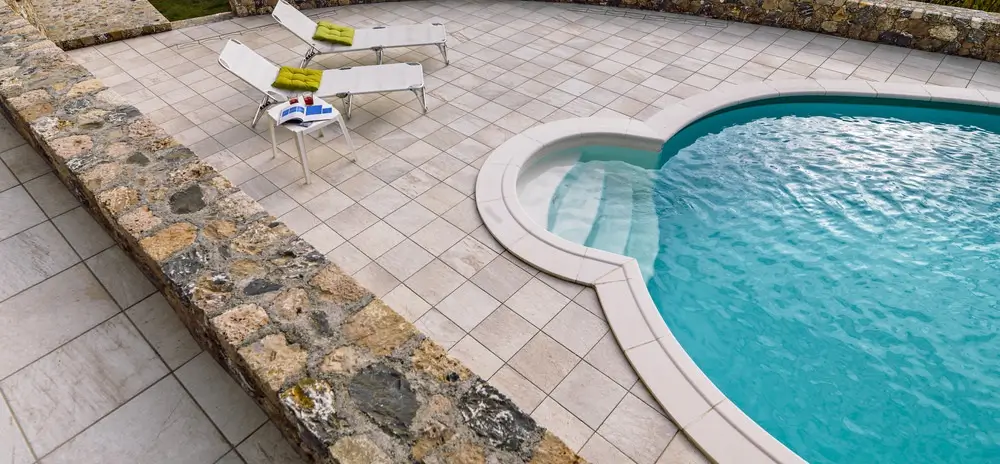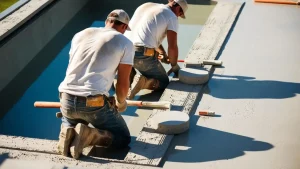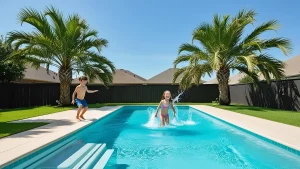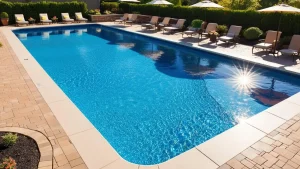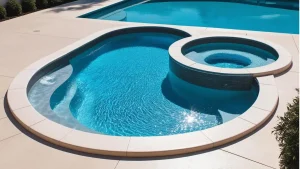Fiberglass swimming pools are among the most desired pools nowadays since they are so easy to maintain.
Unlike concrete or vinyl pools, fiberglass pools are cast from a strong composite material that does not allow algae, cracking, and staining, ensuring you long-lasting pools in your backyard.
On a sweeter note, fiberglass pools can easily give you service for 25- 50 years if well maintained, thus making them a good long-term investment.
If you’re asking yourself why these pools are getting so much attention, we explain below how they can bring years of worry-free fun.
How long does a fiberglass pool Lifespan?
In regard to selecting swimming pools for your home, it will be relevant to make a rational decision on the lifespan aspect.
Fiberglass pools are preferred when it comes to building swimming pools mainly because of their strength, beautiful and elegant appearance and ease of maintenance.
That is why fiberglass pools, if built with high-quality fiberglass material and installed properly, can last between 25 – 50 years.
Various factors affecting the Fiberglass Pool Lifespan
1. Quality of Materials
The durability of a fiberglass pool depends greatly on the material used in the construction process.
High-grade fiberglass pools usually have multiple layers of protection for the pool walls and floors; in a nutshell, anywhere from 5 to 7 layers of strength.
These layers protect against cracks, ultraviolet radiation, and chemical damage.
2. Installation:
The worst fiberglass pool can turn into a disaster if not installed well on the ground.
This requires the accurate leveling of the pool, correct backfilling to stabilize the structure and the guarantee that the box culvert pool is fixed against lateral movement.
3. Microclimate and elementary conditions:
The place where your pool will be installed also determines its durability. Seasonal variation that includes freezing temperatures or heat also puts pressure and stress on the pool framework.
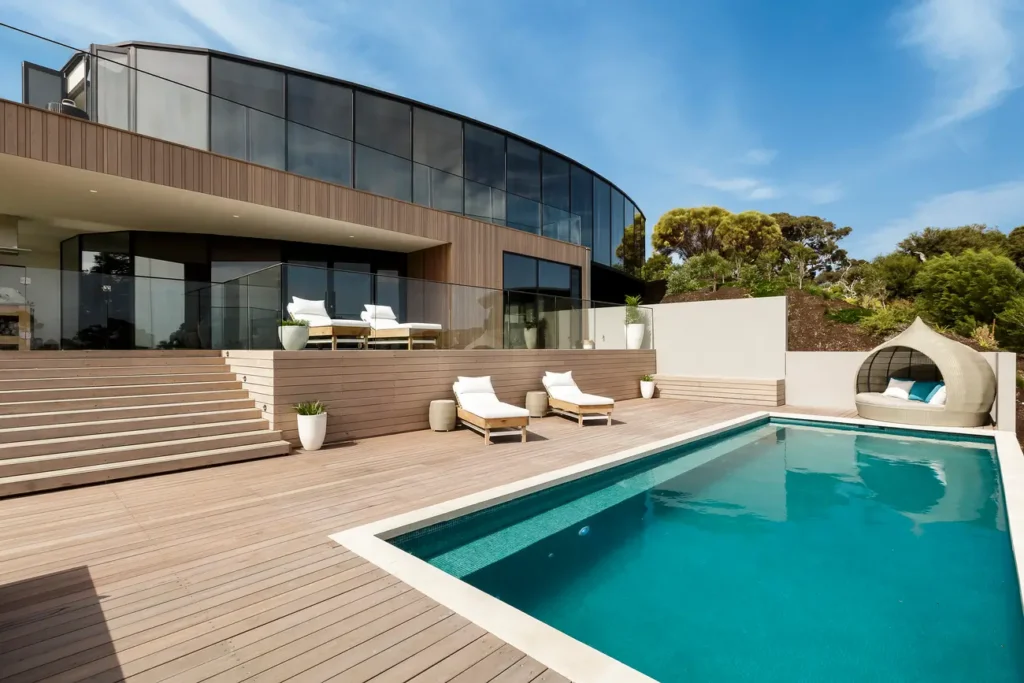
Likewise, the type of soil and the ground conditions are involved because of fluctuation; expansive soils or ground movement frequently results in a structural shift if provided for during construction.
Fiberglass vs Concrete vs Vinyl Liner Pools
Selecting the most suitable type of swimming pool is one of the important decisions homeowners are bound to make.
All three options of fiberglass, concrete and vinyl liner each of the options has to offer and what it lacks.
The following provides comprehensive information for your benefit in order to guide your decision-making process.
Fiberglass Pools:
Fiberglass pools are characterized by their resilience; they have a lifespan of between a quarter of a century to five decades and require very little maintenance.
The material is easy to clean and nonporous, thus avoiding the formation of algae that would increase cleaning time and chemicals.
They are also well-designed with beautiful looks and attractive, colorful finishes.
Concrete Pools:
Concrete pools can be easily designed in any form, shape, and size and also include some interesting add-ons such as waterfalls and tanning ledges.
However, the main drawback of this roofing type is that it implies high maintenance demands. Concrete is porous and has to be washed, Which gets stained by algae.
We usually clean it once every 10-15 years; it needs a layer to be applied again.
Vinyl Liner Pools:
The most economical of the above-discussed pools is the vinyl liner pool, which is perfect for those who want to spend a small amount of their money on the pool.
They come in fairly adequate sizes and forms, though the liners that come with them usually require replacement every five to ten years.
Cost Analysis:
If the initial costs are of great importance, the long-term costs are not less critical in choosing the necessary type of pool.
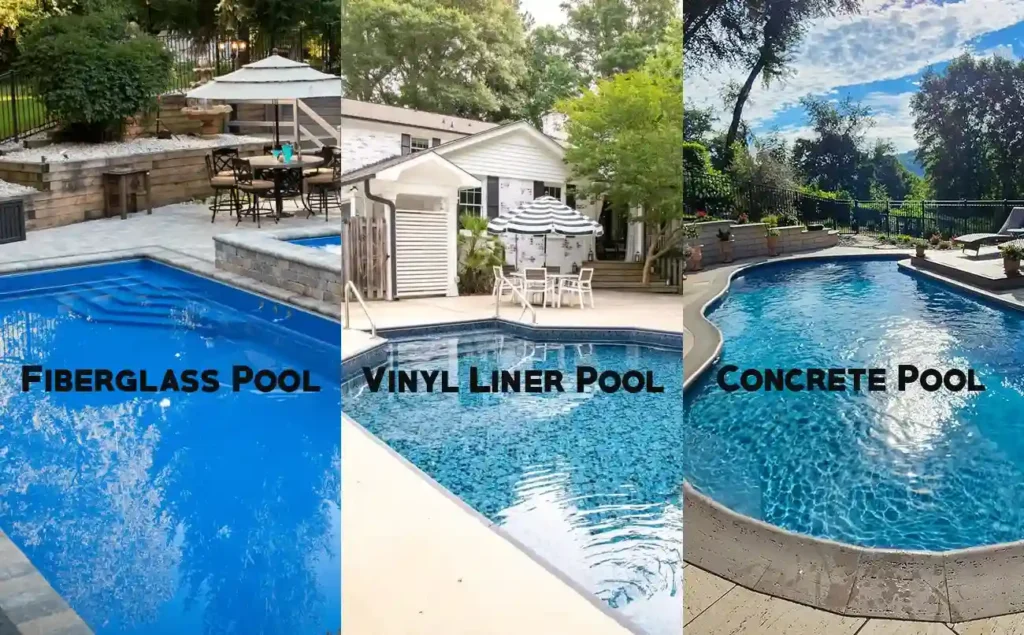
Which Pool Should You Choose?
The best benefit of fiberglass pools is low maintenance and long-term costs.
Families focus on customer-made pools choosing concrete; Low-price kings/queens select vinyl liner pools but should be aware of the lifetime replacement expenses.
Just like any other investment, you must factor in which pool type has what you are looking for since each pool type meets those specific needs.
Does A Fiberglass Pool Require Refinishing?
Fiberglass pools require little maintenance, so do they ever have to be refinished? Let’s explore.
Is Refinishing Required?
Fiberglass pools are made using a protective cold coat outer surface, which means that they rarely have to be refinished.
The structure of a concrete pool requires resurfacing every 10-15 years, whereas a fiberglass pool lifespan only requires routine maintenance for the next 20-30 years.
However, several years of wear and tear and the effects of chemicals, sun or water on your device can make its appearance look less than pristine or bright.
Common Problems Affecting Fiberglass Pool Lifespan
Though fiberglass pools are known to be very strong, there is never a pool without the possibility of a problem.
Learning these Fiberglass pool problems and how to solve them keeps the pool in good condition and available to the various users.
Wear and Tear
Fading:
If exposed to UV for long, the gel coat dulls and may also crack in some areas.
Scratching:
Careless blows or improper cleaning instruments cause superficial scratches.
Staining:
This can be due to poor chemical maintenance or, at times, there is organic debris that stains the surface.
Causes of Damage:
Extreme conditions of UV rays harm the gel coat.
If the right pH or chlorine is not used, then the pool surface will deteriorate.
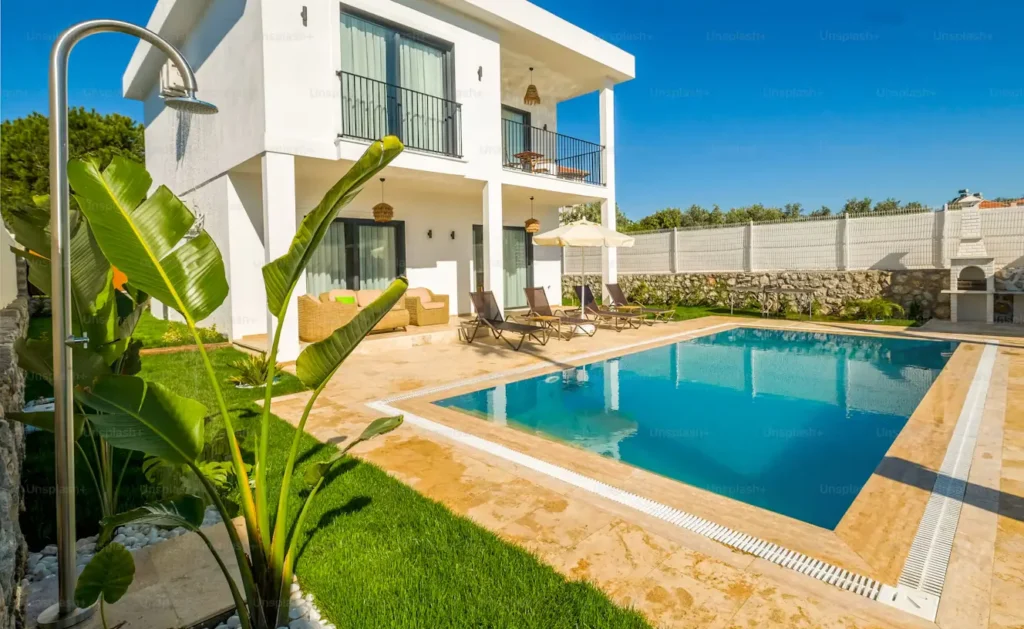
How to Keep Your Longer Fiberglass Pool Lifespan
Fiberglass pools lifespan require constant maintenance in order to last for as long as they should.
Chemical Balance:
Healthy water chemistry serves as a safeguard for swimmers and the deck in a swimming pool. It is recommended that you test pH and chlorine levels at least once weekly to prevent scaling, staining or gel coat damage.
Cleaning and Brushing:
Clean the walls and floor with nonabrasive brushes to avoid damage to the pool surface.
This assists in avoiding deposit formation and build-up, leading to the staining of surfaces, especially those areas that are usually attacked by hard water.
Winterizing Your Pool:
Winterizing is therefore important if you reside in such areas during the cold seasons.
Lower the water level, increase the stabilizer level, and ensure you use high-quality and, if necessary, insulated cover from debris and harsh winter weather.
Maintaining Your Fiberglass Pool Lifespan
Fiberglass pools need not be replaced for several years if they are well taken care of. Here’s how you can ensure it does:
Proactive Maintenance:
Conduct frequent checks, for example, check-ups to establish if the component has signs of wear out or damage.
The swimming pool filter and skimmer basket should be cleaned regularly.
Repair Minor Issues in the Early:
Tiny dents split and fade should always be fixed as soon as possible to prevent the formation of large and costly material fissures.
Frequently Asked Question
How long do fiberglass pool lifespan?
Fiberglass pools typically last between 25 to 50 years, depending on the quality of materials, proper installation, and regular maintenance.
What factors affect the fiberglass pool lifespan?
The lifespan depends on using high-quality materials, proper installation techniques, and managing environmental conditions like soil and climate. Regular maintenance also plays a crucial role in durability.
Do fiberglass pools require refinishing?
Unlike concrete pools, fiberglass pools rarely need refinishing. Their gel coat protective surface minimizes maintenance, typically lasting 20–30 years with proper care.
How can I extend the lifespan of my fiberglass pool?
Maintain proper water chemistry, clean the pool with nonabrasive tools, repair minor issues promptly, and winterize it in cold climates to prevent damage.
How does a fiberglass pool compare to concrete or vinyl pools in terms of lifespan?
Fiberglass pools are more durable, with a lifespan of 25–50 years, compared to 10–15 years for vinyl liner pools and concrete pools requiring resurfacing every 10–15 years. Their low maintenance and nonporous surface make them a better long-term investment.

